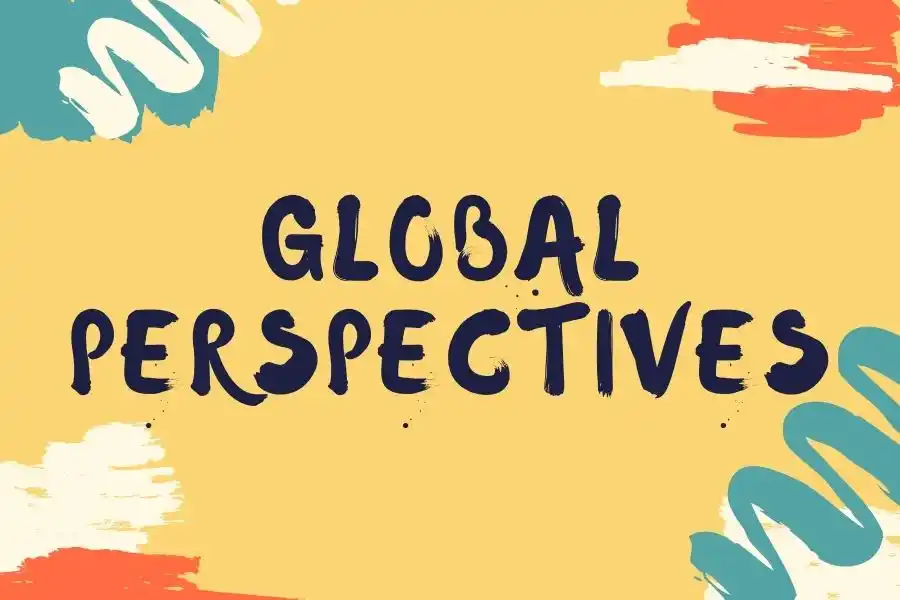Perspectives
Theory of knowledge
Viewpoints are the gist of any subject we take. Knowledge cannot be one-sided; it might have different meanings from different people’s points of view. It is to be taken into consideration that perspectives help in the growth of one’s knowledge. Having a specific ideology shows that the person has knowledge or information on a topic/subject, and they have inferred out perspectives out of the same. IB Theory of Knowledge focuses on imbibing the same onto the students so that they study in-depth and figure out answers by themselves. We can go into this by taking up some knowledge questions with respect to perspective:
Knowledge Questions
Is an understanding of the perspective of other knowers essential in the pursuit of knowledge?
Perspectives from different individuals are the essence of making a decision, but one can choose whether to take another person’s perspective or stick to one’s own. A person’s perspectives are majorly influenced by many factors like their religious and cultural beliefs, linguistic differences, the social construct they were brought up in, their peer group, etc. In order to value and consider another person’s value, we have to start putting ourselves in the other person’s shoes and think accordingly. It is also right to stick to one’s own ideologies and wanting to learn from their own mistakes.
Let us watch a video on how framing things according to one’s own thinking, brings about so many different versions of a problem which can be small or big. Rory Sutherland humorously puts together here about how reframing brings happiness to one’s life and others around them.
All through these videos, we can see that everyone is trying to validate the same point. One cannot stand ignorant and consider himself the final word on a topic.
Just like a religious person believes in his god, the same way an atheist has to respect when he says he doesn’t believe in such existence. It’s a free world hence everyone has got a mind to speak their point of view and not be judged or assessed on the way they have chosen to live or exist.
But we can’t also force a person to accept another’s beliefs even if the repercussions are worse. The issue with just sticking on with just one point of view, his or her decision making limited and incomplete. Sticking to just one’s own idea is called egocentrism. The article by Psychology today gives an elaborate idea on how it is ideally required to be more acceptable to have a look at others’ viewpoints as well.
Knowledge questions
Are some types of knowledge less open to interpretation than others?
For understanding, this question in real we can have a snoop into an area of knowledge that has a got a foundation in all relevant fields, Mathematics. Maths is a subject that builds on a primitive base of knowledge. The exquisite attribute of it is a subject that has a very strong base that cannot be subjective to many changes. Even when there are maybe so many ways in finding answers to one particular problem, the basics will always remain the same.
In addition, subtraction, multiplication, division, the numerals are all the same irrespective of what kind of theories we are dealing with. There are always very feeble chances for interpreting mathematics foundations from different perspectives.
There’s a different scheme of things in Mathematics which is actually quite interesting. It is called forced perspective. Forced perspective is the creation of an optical illusion that makes the object look bigger, smaller, nearer, or farther. This basically done with the help of mathematical equations and theories. The best example we can take on the same is none other than Disneyland.
There are a lot of structures that are created with the help of forced perspective which makes it interesting in the photographs. This means that we are actually asked to see a thing in a particular way so that we get the expected results. There is no different point of view for this, it is fixated on just one point of view. Let’s take a look at that through this video:
One debatable topic that I can take a look into will be whether to consider Mathematics as a universal language. The article that has been researched by Doug Harmer throws light into how symbols are given varied interpretations in different parts of the world. The article clearly explains how this creates disparities in knowledge in students. He mentions teaching Polish students who moved to the UK and found it difficult to understand in solve mathematical problems.
Hence, even the most foundational subject can also be not spared from the system of interpretation. Perspectives can be found in most places. It just requires the art of questioning in the right places and evidencing the same throughout.
If you like this page, you would surely like to view What is perspective?




